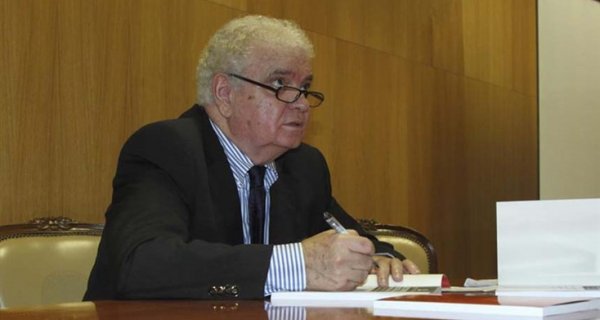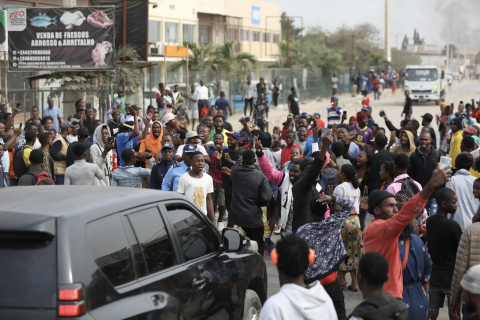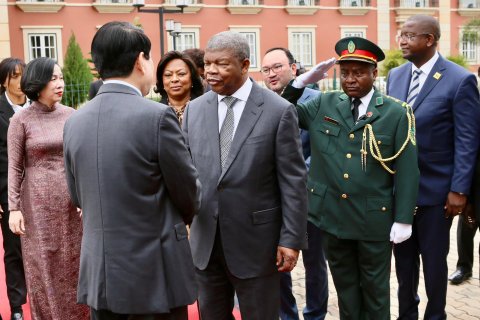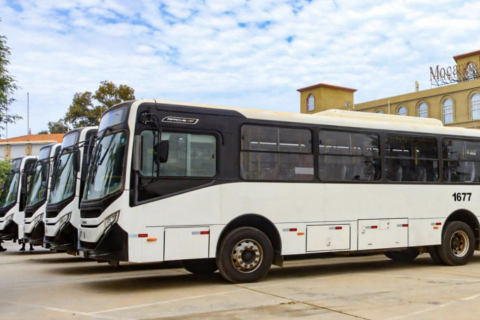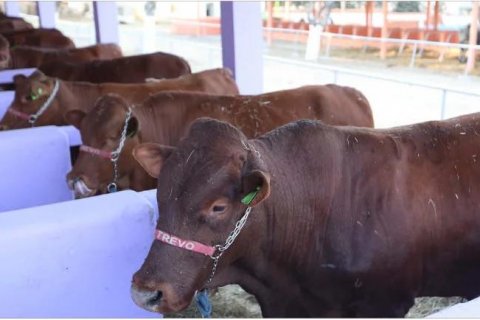"Our forecast at the CEIC (Center for Scientific Research Studies) is that this year the country's growth will be around 2.3 to 2.5 percent, not deviating from the forecasts of the IMF (International Monetary Fund) and the World Bank, which may be even lower", said the economist in statements to Lusa.
Forecasts "are fallible, that's why no two institutions converge on the values of the GDP growth rate (Gross Domestic Product), there are always differences of decimals, hundredths or units and, therefore, our perspective does not deviate from the international forecasts", he argued.
Commenting on the prospects for growth of the Angolan economy in 2023, Alves da Rocha referred that all economies on the planet will face "complicated times" this year, mainly due to China's growth rate, "which this year should be less than 3 percent , according to IMF forecasts".
"This also has to do with the paradigm shift, in China's development model, which two or three years ago prioritized aggregate consumption, especially private consumption, because it wants to lift everyone out of poverty (...). to have some consequences in terms of international trade relations," he said.
The director general of CEIC, a body of the Catholic University of Angola, referring to a publication by The Economist Intelligence Unit, said that the African economic outlook for 2023 "is negative", particularly due to the international situation.
High inflation rates, high interest rates in money and financial markets, energy problems "all this will be reflected in a slowdown in the growth of the main African economies".
"Even in those (economies) that are benefiting from the rise in oil prices in the short term, but all this has a boomerang effect, in Angola the boomerang effect of the rise in oil prices will be verified", he pointed out.
According to Alves da Rocha, Angola, whose economy depends on oil revenues, will register "momentarily" an increase in oil export revenues, international reserves and tax revenues.
"But all this will have consequences afterwards, as Angola and other African countries are predominantly importing economies and there is already an increase in the prices of imported products", he added.
Regarding the "uncertainties" of the world economies, Alves da Rocha considered the short and medium term prospects "not good", especially for the African economies, "which 10 years ago already showed remarkable growth dynamics above 5 percent" .
"And what is predicted until 2027, World Bank (BM), IMF, The Economist Intelligence Unit are growth rates around 3 percent, annual averages, and Angola is no exception to this rule, which means that in the long term 2027 , long term with rolled up sleeves, this does not foresee an improvement or reduction in the poverty rate", he justified.
He lamented what he called the "tremendous" poverty rates in Angola and in some African countries and criticized the "lack of solid public policies" in Angola to reduce poverty, contrary to what happens in Portugal, he underlined, "where the authorities assume poverty " as a political priority.
"When I hear that Portugal, for example, is committed to lifting 400,000 people out of poverty by 2025/26, it means recognizing that there is poverty, I am in fact very worried when I don't see it here in Angola", he shot.
"At least I did not notice the indication of a target of how many people the Government intends to lift out of poverty in 2023 or even 2027", he noted, recalling that the 2018-2022 National Development Plan (PDN), which poverty rate to 25 percent.
He also said that it was not impossible to reduce it to 25 percent, defending, however, that public policies should be in this direction: "To date I still haven't seen any balance if the poverty rate has really been reduced to 25 percent, based on the principle of that the INE values are correct and acceptable".
Calculations by the National Institute of Statistics (INE) "show that in 2018-2019 the monetary poverty rate was around 41 percent, Angola was in economic recession from 2015 to 2021, economic recession means non-distribution of income" .
"Non-distribution of income means an increase in the unemployment rate, which means more people in poverty, these data have not yet been presented", shot the economist and university professor.
Alves da Rocha also criticized the lack of information on the PDN 2018-2022 targets, in relation to poverty rates, noting that the CEIC has been making annual estimates on the necessary assumptions for reducing poverty in Angola.
"Our estimates pointed, at the end of 2021, that the monetary poverty rate in Angola could be around 45 to 46 percent, already considering the negative impact of the economic recession".
"Officially, nothing is known, whether the 25 percent target was reached, what appears in our economic policy documents is the intention to reduce the unemployment rate, reduce the poverty rate and there is no balance of what happened concretely in the poverty rate, we certainly haven't been able to reduce it or put it at 25 percent", concluded the economist.

